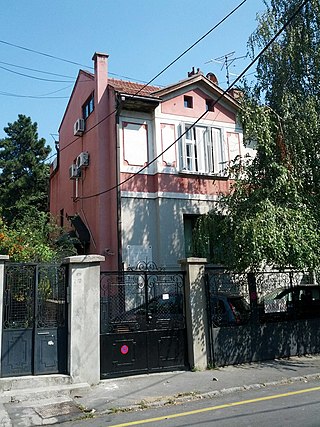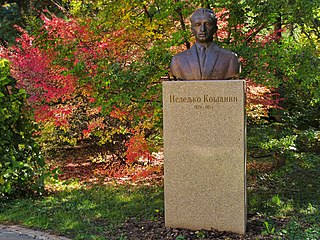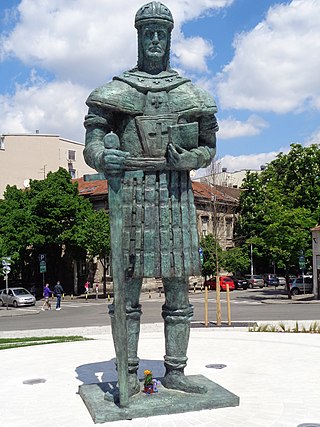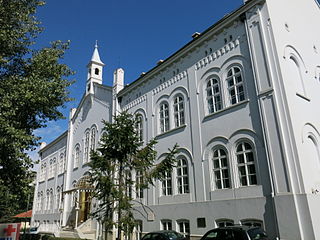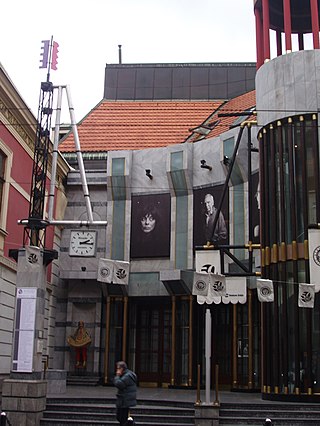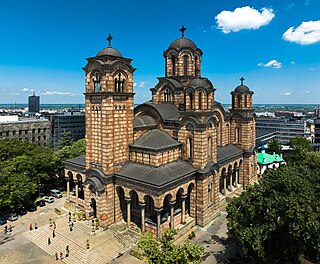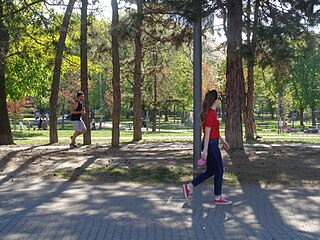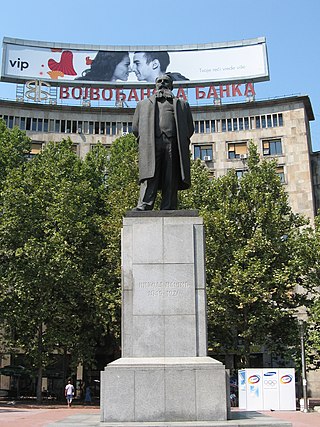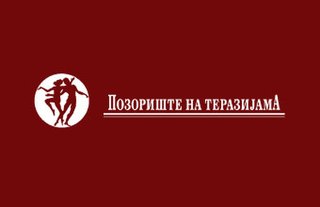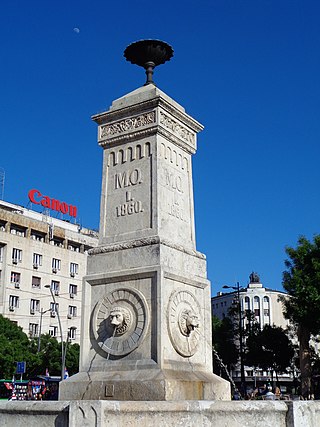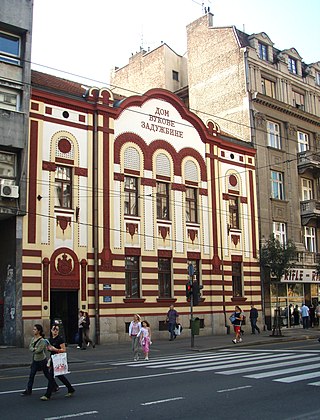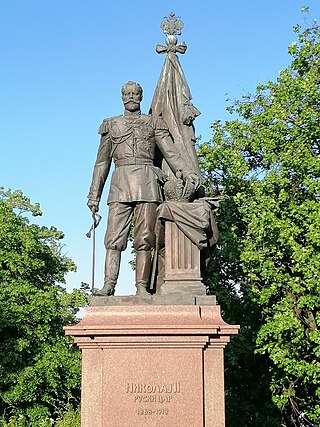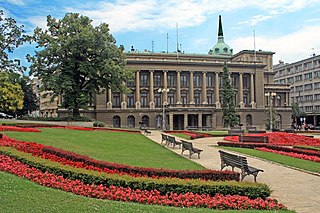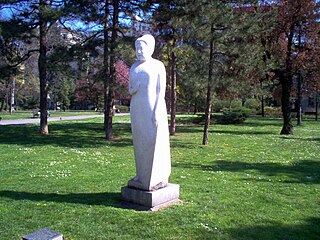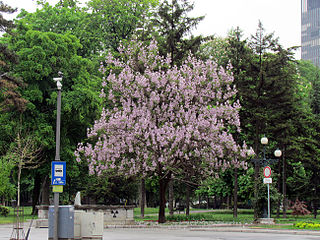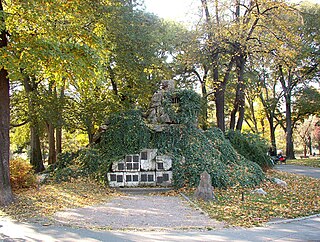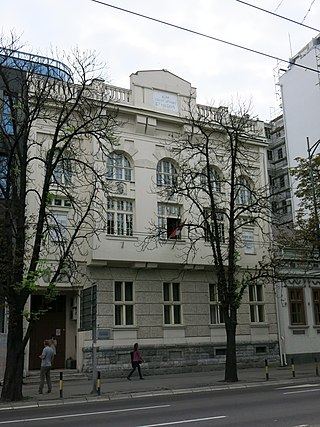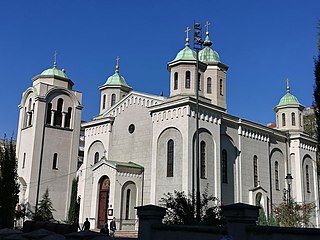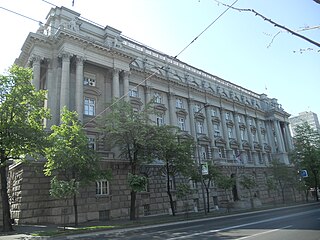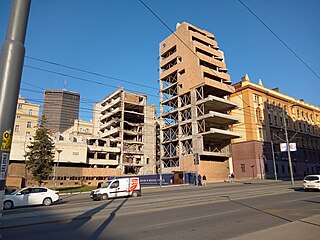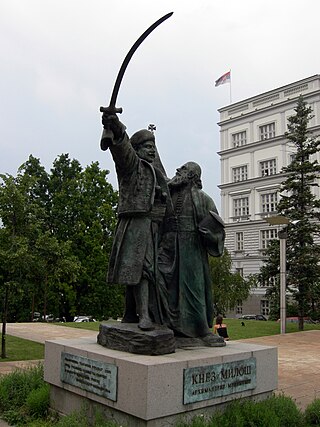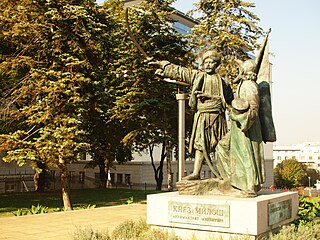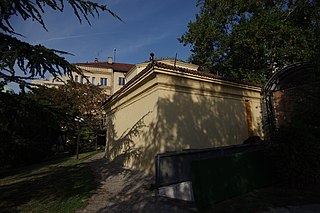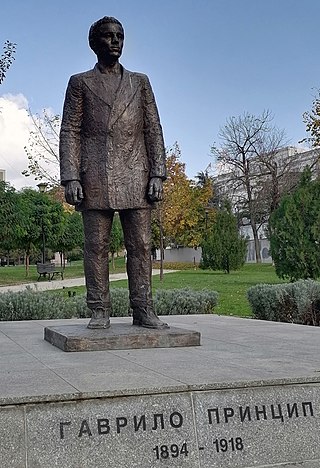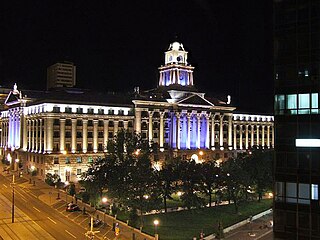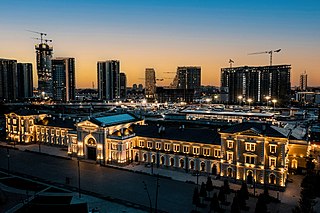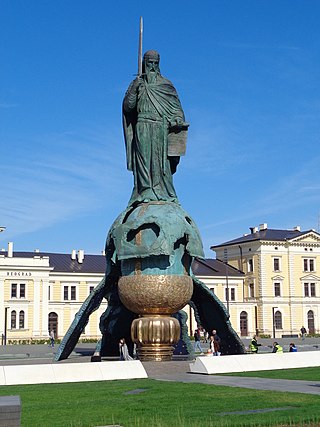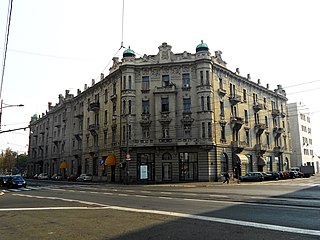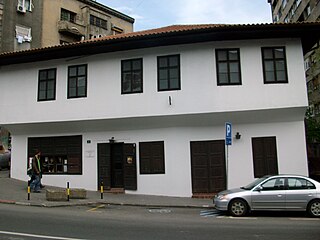Self-guided Sightseeing Tour #10 in Belgrade, Serbia
Legend
Guided Free Walking Tours
Book free guided walking tours in Belgrade.
Guided Sightseeing Tours
Book guided sightseeing tours and activities in Belgrade.
Tour Facts
9.1 km
235 m
Experience Belgrade in Serbia in a whole new way with our free self-guided sightseeing tour. This site not only offers you practical information and insider tips, but also a rich variety of activities and sights you shouldn't miss. Whether you love art and culture, want to explore historical sites or simply want to experience the vibrant atmosphere of a lively city - you'll find everything you need for your personal adventure here.
Activities in BelgradeIndividual Sights in BelgradeSight 1: Кућа Милутина Миланковића
House of Milutin Milanković is a сultural monument in Serbia. It is located in Belgrade, in the municipality of Palilula, at 9 Ljubomira Stojanovića Street.
Wikipedia: House of Milutin Milanković (EN), Heritage Website
Sight 2: Биста Недељка Кошанина
The memorial bust of Nedeljko Košanin is a monument in Belgrade. It is located in the Botanical Garden "Jevremovac" in the municipality of Stari Grad.
Sight 3: Monument to Despot Stefan Lazarevic
The monument to Despot Stefan Lazarević was erected on April 20, 2021 on the square in Despot Stefan Boulevard, between Gundulićev Venac, Drinčićeva and Milan Kašanina Streets.
Wikipedia: Споменик деспоту Стефану Лазаревићу (Стари град) (SR)
Sight 4: First Town Hospital
The First Town Hospital was built in Belgrade, the capital of Serbia in 1868. The construction was initiated by the ruling prince Mihailo Obrenović as the first building in Belgrade built purposely to serve as a hospital.
Sight 5: Museum of Jovan Cvijić
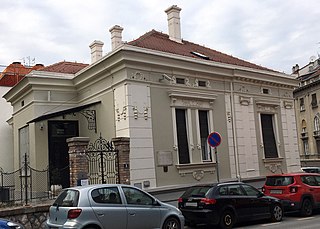
Please credit this with: "Sadko, Wikipedia" in the immediate vicinity of the image. A message or email to me would be appreciated as well. If you would like special permission to use, license, or purchase the image please contact me Sadko to negotiate terms. / CC BY-SA 4.0
The Jovan Cvijić Memorial Museum is located in the family home of Jovan Cvijić, a Serbian scientist and geographer.
Sight 6: Биста Јована Цвијића
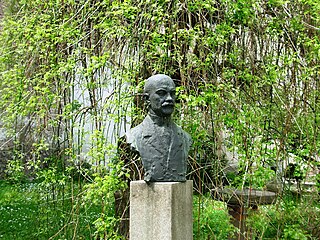
The memorial bust of Jovan Cvijić is a monument in Belgrade, in the municipality of Stari Grad.
Sight 7: Атеље 212
Atelje 212 is a theatre located in Belgrade, Serbia.
Sight 8: Биста Милутина Бојића
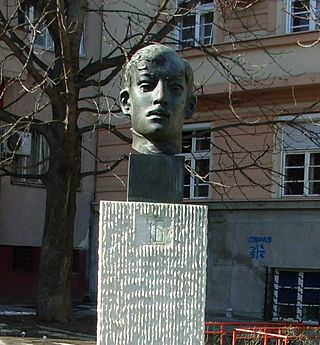
The memorial bust and square of Milutin Bojić is located on the corner of Palmotićeva and Milutine Bojića streets in the municipality of Stari Grad.
Wikipedia: Спомен-биста и сквер Милутина Бојића у Београду (SR)
Sight 9: PTT Museum
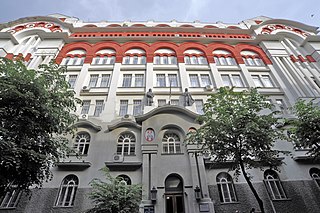
PTT Museum (Postal-Telegraph-Telephone Museum) in Belgrade, functions as a museum within the Public Enterprise "Post of Serbia". It is located at 13 Majke Jevrosime Street. PTT Museum was founded for the purpose of protecting, collecting, studying and exhibiting objects and documents related to the work and development of postal, telegraph and telephone traffic on the territory of Serbia. The representative building is the work of the famous architect Momir Korunović and is designed in a modern Serbian-Byzantine style.
Sight 10: Црква Свете тројице
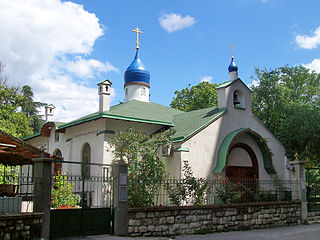
The Church of the Holy Trinity, also called the Russian Church, in Belgrade is a metochion of the Russian Orthodox church in Belgrade, Serbia. It was erected in 1924 according to the plans of Russian émigré architect Valery Stashevsky and was meant mainly for refugees from Soviet Russia who arrived in Serbia in thousands from 1920, after the defeat of the White Army in European part of Russia in the Russian Civil War. The church is located on the northern edge of the Tašmajdan Park, next to a much bigger St. Mark's of the Serbian Orthodox Church.
Sight 11: Saint Mark's Church
The St. Mark's Church or the Church of St. Mark is a Serbian Orthodox church located in the Tašmajdan park in Belgrade, Serbia, near the Parliament of Serbia. It was built in the Serbo-Byzantine style by the Krstić brothers, completed in 1940, on the site of a previous church dating to 1835. It is one of the largest churches in the country. There is a small Russian church next to St. Mark's.
Wikipedia: St. Mark's Church, Belgrade (EN), Website, Heritage Website
Sight 12: Tasmajdan Park
Tašmajdan Park, colloquially Tašmajdan or simply just Taš, is a public park and the surrounding urban neighborhood of Belgrade, the capital of Serbia. It is located in Belgrade's municipality of Palilula.
Sight 13: Играли се коњи врани
"Crow Horses Were Playing" are two large decorative sculptural groups in bronze "horses and giants", placed in 1939 in front of the assembly building of the then Kingdom of Yugoslavia, and today the Republic of Serbia. This open-air work of art, which is the work of sculptor Toma Rosandić (1878-1958), was technically realized by sculptor Sava Sandić, and was cast in the foundry of Miodrag Jeremić in Vrčin.
Sight 14: Historical Museum of Serbia
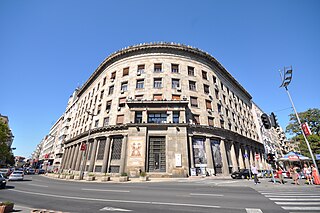
The Historical Museum of Serbia is a public institution dedicated to documentation of history of Serbia from prehistory up to the present. The museum was established in 1963 and today it preserves over 35,000 exhibits in its collection. Over the years the museum was located at different locations around the capital city of Belgrade. In 2020, as a part of the Belgrade Waterfront development project, the museum was granted the historical building of the Belgrade Main railway station as its new permanent base. The museum is one of the leading institutions of its kind in the city and the country.
Sight 15: Monument to Nikola Pašić
The monument to Niš Pašić is a monument in Belgrade. It is located on Nikola Pašić Square in the municipality of Stari Grad.
Sight 16: Споменик обешеним родољубима
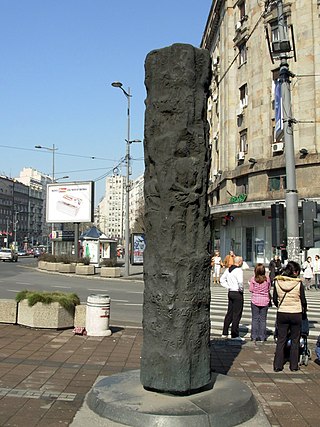
The monument to the hanged patriots in 1941 was erected in Belgrade in 1983, in memory of five fellow citizens and patriots hanged by the Gestapo on August 17, 1941.
Sight 17: Terazije Theatre
Sight 18: Terazijska česma
The Terasia fountain is located in Terazije, in front of the hotel "Moskva". It was built in the form of a stone pillar, with a metal vase on top, with a total height of about 800 cm. It was erected in 1860 by order of Prince Miloš, which marked his return to the throne. It is a work of sculptor Franz Laurent.
Sight 19: Крсмановићева кућа
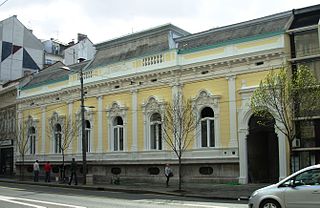
Krsmanović's House, situated at 34 Terazije Street in Belgrade, was built in 1885 for a merchant. In 1918, it became the house of Alexander Karađorđević, Prince Regent of Yugoslavia and was used as a theatre before it became public property after World War II. It has served as the Protocol building of the Ministry of Foreign Affairs. The Academic art house is considered among the best designs of the architect Jovan Ilkić.
Sight 20: Дом Вукове задужбине
The Vuk Foundation House is the name of a historical building in Belgrade, built in 1879, that serves as the headquarters of the Vuk Foundation. Located on the Теrazije at 2 Kralja Milana Street, it is one of the oldest structures in that part of Belgrade. Aleksandar Bugarski, a prominent 19th-century Serbian architect, designed the original building as a two-story house in the Academic art style of the day.
Sight 21: Monument to Emperor Nicholas II
The monument to Tsar Nicholas II is a gift from the Russian Military Historical Society, a gift from the Russian Federation to Serbia. It is located in Aleksandrov Park in Belgrade, on King Milan Street, where the embassy of the Empire of Russia was located.
Sight 22: Presidency of the Republic of Serbia
The Novi Dvor is the seat of the President of Serbia. It was a royal residence of the Karađorđević dynasty of Kingdom of Yugoslavia from 1922 to 1934. The palace is located on Andrićev Venac in Belgrade, opposite Stari Dvor.
Sight 23: Monument to Nadezda Petrovic
The monument to Nadežda Petrović is a monument in Belgrade. It is located in the Old Town.
Sight 24: Pioneers Park
Pioneers Park is a park in Belgrade, the capital of Serbia. Developed from the royal garden, which itself was a successor of a much older garden, it is today one of the central city parks. It has been open for public since 1944. The park has been declared a botanical natural monument.
Sight 25: Осматрачница српске врховне команде на Кајмакчалану
In World War I, after crossing over Albania, where it was annihilated, the Serbian Army recovered after a while and occupied its position at the Macedonian front, which spread across the mountain Kajmakčalan in Маcedonia. On the top of this mountain there was the observation post of the Serbian Army High Command. It is located in the Pioneers Park.
Wikipedia: Observation Post of the Serbian Army High Command on Kajmakčalan (EN)
Sight 26: Музичка школа Станковић
"Stanković" Music School in Belgrade, founded in 1911, under the auspices of King Peter I, as a musical and teaching institution. It is one of the oldest educational institutions in Belgrade. When it was established, it operated within the Choral Society "Stanković". It was named after the Serbian composer, and pianist Kornelije Stanković who was the first to introduce harmonics of the Serbian root and spiritual compositions.
Sight 27: Вазнесењска црква
The Church of the Ascension is a Serbian Orthodox church in downtown Belgrade, the capital of Serbia. It still uses the bell under which the Hatisheriff of 1830 was announced, by which the Ottoman Empire granted autonomy to Serbia. The church was declared a cultural monument in 1969.
Wikipedia: Church of the Ascension, Belgrade (EN), Heritage Website
Sight 28: Стара зграда Генералштаба
The Old General Staff Building, also known as the Stone Palace and the Baumgarten Palace, houses the Ministry of Defence of Serbia. It is located in Savski Venac, Belgrade.
Wikipedia: Old General Staff Building, Belgrade (EN), Heritage Website
Sight 29: Ruins of Yugoslav General Staff from 1999 NATO bombing
The Yugoslav Ministry of Defence Building, also known as the General Staff Building, is a complex of government buildings, that formerly housed the Ministry of Defence of Yugoslavia and the General Staff of the Yugoslav People's Army, now housing the Ministry of Defence of Serbia. It is located in Savski Venac, Belgrade.
Wikipedia: Yugoslav Ministry of Defence Building (EN), Heritage Website
Sight 30: Monument to Prince Miloš and Archimandrite Melentije
The monument to Miloš Obrenović is a monument in Belgrade. It is located in the municipality of Savski Venac.
Sight 31: Gavrilo Princip Park
Gavrilo Princip Park is a park in Belgrade, the capital of Serbia. Originating from 1836, it is one of the oldest parks in the city and in 1864 it was declared the first public park in Belgrade. Named Financial Park until 2017, it is located in the municipality of Savski Venac.
Sight 32: Амам кнеза Милоша
Hammam of Prince Miloš is the former Turkish bath in Belgrade, the capital of Serbia. Built in 1836-37, it was declared a cultural monument in 1948.
Sight 33: Monument to Gavrilo Princip
The Monument to Gavrilo Princip is a monument in Belgrade. It is located in the village of Savamala, in the municipality of Savski Venac, between Kneza Miloša Street in the east, Admiral Geprata Street in the north, Balkanska Street in the west and Nemanjina Street in the south in Gavrilo Princip Park.
Sight 34: Railway Museum
The Railway Museum is a museum located in the Savski Venac, Belgrade, the capital of Serbia.
Sight 35: The Old Belgrade Railway Station
Belgrade Railway Station is Belgrade's former main railway station. The building was built between 1882 and 1885 according to the plans of the architect Dragutin Milutinović, and has the status of a cultural monument of great importance.
Wikipedia: Железничка станица Београд–главна (SR), Heritage Website
Sight 36: Monument to Grand Zupan Stefan Nemanja
The monument to Stefan Nemanja is located on Sava Square in Belgrade, at the beginning of Nemanjina Street, in front of the former building of the Main Railway Station, and is the work of Russian sculptor Alexander Yulianovich Rukavishnikov, a member of the Russian Academy of Arts.
Sight 37: Bristol Park
Park Bristol is a park in Belgrade, the capital of Serbia. It is situated in the neighborhood of Savamala, between the incoming and outgoing platforms of the Belgrade Main Bus Station. It is located in the municipality of Savski Venac.
Sight 38: Manak's House
Manak's House is a building on the outskirts of the former Savamala, Belgrade. It is located on the corner of Kraljevića Marka and Gavrila Principa Streets in Belgrade, Serbia. It was declared a cultural monument by the Cultural Heritage Preservation Institute of Belgrade on 9 May 1963.
Share
How likely are you to recommend us?
Disclaimer Please be aware of your surroundings and do not enter private property. We are not liable for any damages that occur during the tours.
GPX-Download For navigation apps and GPS devices you can download the tour as a GPX file.
